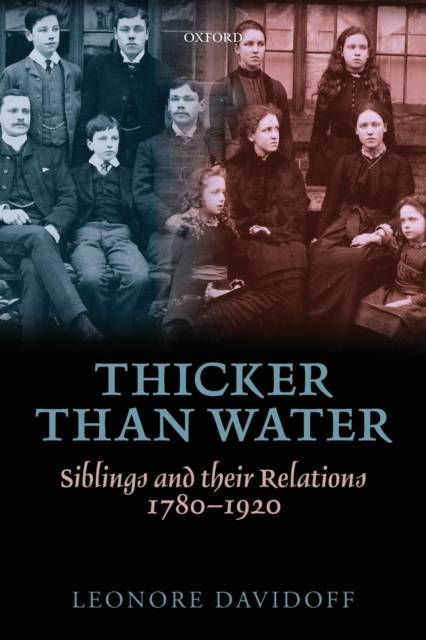
- Retrait gratuit dans votre magasin Club
- 7.000.000 titres dans notre catalogue
- Payer en toute sécurité
- Toujours un magasin près de chez vous
- Retrait gratuit dans votre magasin Club
- 7.000.000 titres dans notre catalogue
- Payer en toute sécurité
- Toujours un magasin près de chez vous
47,45 €
+ 94 points
Format
Description
Brothers and sisters remain, for those that have them, an inextricable part of existence. In adult life they may never be in contact but they cannot be formally divorced. Brothers and sisters are frequently life's longest relationship. Yet until recently, historians have scarcely noticed. Thicker than Water is a pioneering history of sibling relationships in the long nineteenth century, from the last decades of the eighteenth to the first decades of the twentieth. The principal focus is on Britain, the first major capitalist society, and its middle classes, who were at the core of the nascent new order. It was their extensive family networks that provided the capital, personnel, skills, and contacts crucial to the rapidly expanding commercial and professional enterprises of the Victorian era. Davidoff examines what we know about sibling relationships at this time, before delving deeper, looking at their uses and meaning for British middle class families, how they operated within the economic, social, cultural, and religious constraints of their place and time, and how they changed as families became smaller from the end of the nineteenth century onwards. The issues raised throughout the book are grounded in an exploration of some specific themes, sibling intimacy and incest, sibling death, as well as in case studies of famous sibling relationships, such as that between William Gladstone and his sisters, and a revealing account of the household relations of perhaps the most influential interpreter of personal and familial life in modern society, Sigmund Freud.
Spécifications
Parties prenantes
- Auteur(s) :
- Editeur:
Contenu
- Nombre de pages :
- 464
- Langue:
- Anglais
Caractéristiques
- EAN:
- 9780199678365
- Date de parution :
- 15-09-13
- Format:
- Livre broché
- Format numérique:
- Trade paperback (VS)
- Dimensions :
- 157 mm x 231 mm
- Poids :
- 680 g







